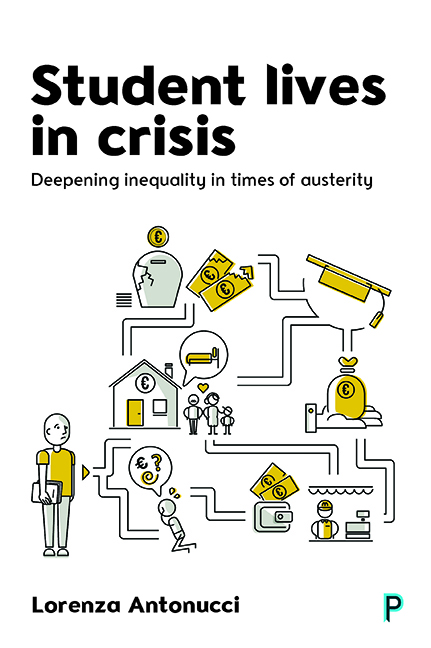Book contents
- Frontmatter
- Dedication
- Contents
- List of tables and figures
- List of acronyms
- Note on author
- Preface: A post-Brexit preface
- Acknowledgements
- Introduction: Young people’s lives at university in crisis
- Part 1 University for all? How higher education shapes inequality among young people
- Part 2 Exploring the inequality of university lives in England, Italy and Sweden
- Part 3 The ‘eternal transition’: young adults and semi-dependence in university
- Conclusion: Addressing growing inequality among young people in university
- Notes
- Annex
- Index
Introduction: Young people’s lives at university in crisis
Published online by Cambridge University Press: 05 April 2022
- Frontmatter
- Dedication
- Contents
- List of tables and figures
- List of acronyms
- Note on author
- Preface: A post-Brexit preface
- Acknowledgements
- Introduction: Young people’s lives at university in crisis
- Part 1 University for all? How higher education shapes inequality among young people
- Part 2 Exploring the inequality of university lives in England, Italy and Sweden
- Part 3 The ‘eternal transition’: young adults and semi-dependence in university
- Conclusion: Addressing growing inequality among young people in university
- Notes
- Annex
- Index
Summary
Young people are often described as those most affected by the current European economic crisis, but what do we know about how young adults live in Europe? In the words of rapper Stromae, ‘European youth's favourite misery muse’, European twenty-somethings embark on education to get a better job, and are then afflicted by financial pressures and by the daunting cycle of credit and debt. The life of young people in university fits well with this tale of sorrow: the pressures of studying to compete in the labour market where unpaid work and internships are increasingly mandatory, the rising costs of higher education (HE) and the issues of debt accumulated by student loans – these are all typical features of the current experience of life at university.
These are only anecdotal accounts from popular culture, however, and there are as yet no systematic studies exploring how young people embarking on university live as students in Europe. In exploring the individual experiences and living conditions of young people in university, this book shows that transitions through university tend paradoxically to enhance, rather than limit, existing social inequalities.
For policy-makers this sorry tale might appear surprising. After all, greater access to HE has been the policy mantra of the 1990s and 2000s, in an attempt both to boost employment rates and at the same time, to increase social inclusion in European societies. This double goal was behind New Labour's ‘widening participation agenda’ in the UK, which, in the 2000s, became a constitutive part of the European Union (EU) strategy for social inclusion and economic competitiveness. For example, one of the five crucial targets of the EU 2020 strategy is to have at least 40% of 30- to 34-year-olds completing tertiary-level education by 2020. The expansion of HE has, in fact, already increased all over Europe in recent years: about 50% of young people (cohort 18-29) in Europe enter HE, which means that they are embarking on university experience in increasing numbers, even if they do not necessarily finish their degree.
While university education has never been so central in the lives of young adults in Europe, the continent is confronted with the ‘broken promise of higher education.’ promise of higher education.’
- Type
- Chapter
- Information
- Student Lives in CrisisDeepening Inequality in Times of Austerity, pp. 1 - 14Publisher: Bristol University PressPrint publication year: 2016

